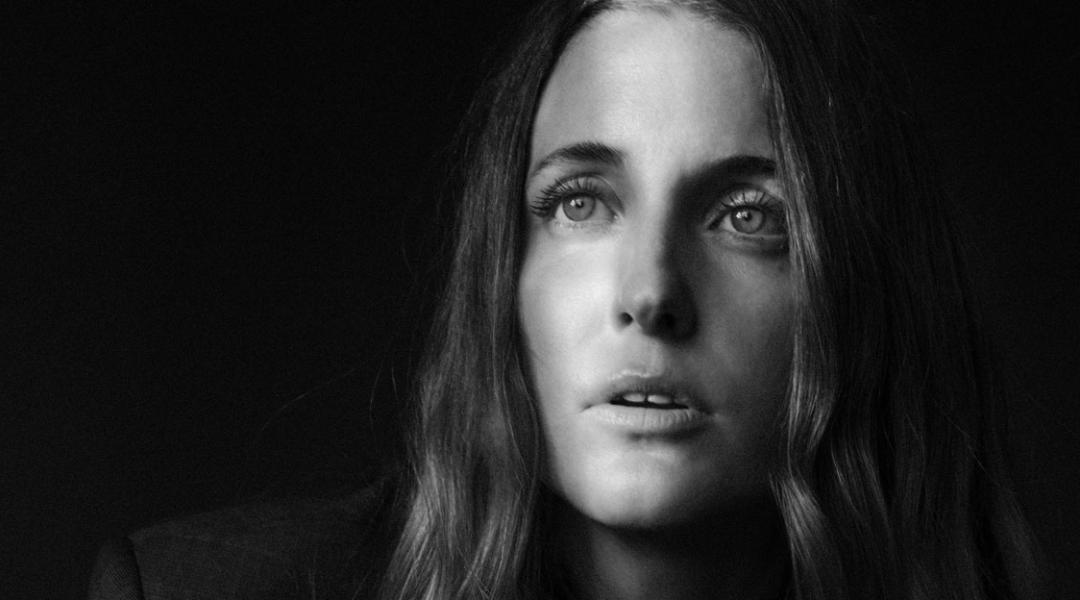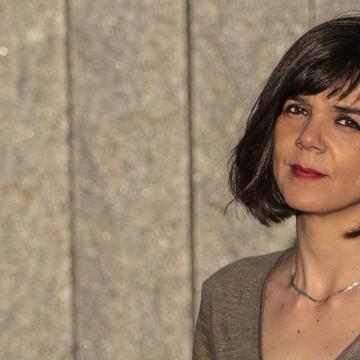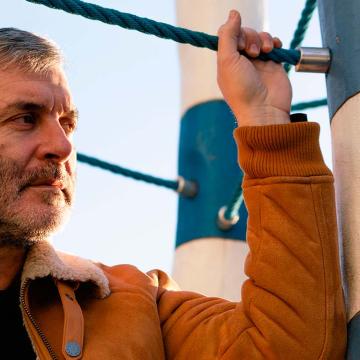Since opening on the 17th of April, Espacio Iberia has welcomed dozens of guests with one thing in common: their infinite talent. Talent that has inspired all the people who have sat there to listen to them.

Words are the raw material Leticia Sala works with and she has the virtue of cutting them down and conveying more with less. Artists like Rosalía, Aitana, or Natalia Lacunza, for whom she has written lyrics, know this well. After a couple of poetry collections, she makes the leap to prose with her first short-story book, ‘Los cisnes de Macy’s’, focused on the role technology plays in our lives.
She studied Law, but ended up realising that what she really wanted to do was write. Leticia Sala, (Barcelona, 1989) left her job as a lawyer and joined an NGO that sends books to developing countries. When she started publishing short texts on Instagram, some commercial brands got in touch with her to work as a copywriter. Then, an editor suggested publishing a book, and that’s how in 2018 she published Scrolling after sex, her first poetry collection. Two years later, she released another poetry collection inspired by virtual relationships that end up materialising: In Real Life. At the same time, she started writing lyrics for artists like Rosalía, Aitana, or Natalia Lacunza and she assures us that she’s open to any kind of project to do with words. Now, she’s just published her first short-story collection: Los cisnes de Macy’s.
You’ve made your debut in prose, but many of your stories feel poetic.
I’d like to always keep poetry close by because I think it’s a really powerful tool to convey messages in few words. Poetry is easier to share, but short stories have always been there, just like song lyrics. The foundation of what I do is always words. I love playing with them.
You’ve previously said that writing works like therapy.
Writing leads us to connect with corners of our mind that we wouldn’t otherwise connect with. Fiction can be really therapeutic, sometimes even more so than writing autobiographically, because it offers you a freedom that reality will never provide. In fiction, you can make characters move forward in a different way than they would do in real life. All this allows you to gain new perspectives with reality.
“I’d like to always keep poetry close by because I think it’s a really powerful tool to convey messages”
Technology has become a tool that enables communication, but it is also associated with indifference. As an author, do you scour and analyse where those seemingly hidden emotions are?
My generation grew up with and without the Internet. Before our personalities were fully formed, mobile phones appeared on the scene and that caused a change in the script, a change in our sense of identity. I believe everyone has two or three really important questions that they try to find an answer to throughout their life. In my case, one of them is the role technology plays in our lives. In the short stories in Los cisnes de Macy’s, I want to talk about how it affects our identity or the way we relate to each other. I’m really curious to see which direction we’re going in in this sense.
And, as a millennial, where would you say this process is taking us?
I’m more interested in being in contact with the changes that appear rather than anticipating what that future will be like, since it can cause anxiety. My generation has been a guinea pig for many things, without knowing it we’re leading the way for future generations regarding the use of technology. For this reason, just like in fields like sustainability or feminism, we have a big responsibility when creating human codes of conduct in a field that is as unhuman as technology.

Cover of ‘Los cisnes de Macy’s’, Leticia Sala’s first short-story collection. © Reservoir Books
Perhaps within that humanistic vision of social media we should highlight that they’ve been essential to advance many causes, like gender equality.
Social media are a microphone and it’s interesting to see how they’ve lent a voice to people who didn’t have one before. For example, they’ve had a wonderful impact on the concept of motherhood: mothers have been able to have real conversations about it. In short, they’ve allowed many collectives to express themselves differently.
Do you take notice of other people’s talent? Are there authors to whom you feel indebted as a writer?
Absolutely. I owe a lot to Lucia Berlin and Joan Didion. Also, to John Cheever and James Salter. I could carry on, but those four have been a light in the dark, they’ve enlightened me. By reading them I’ve learnt a lot about the economy of prose, something I personally appreciate when I read. I guess that, when you write, you try to do what you appreciate as a reader.
“Social media are a microphone and it’s interesting to see how they’ve lent a voice to people who didn’t have one before”
You’re also a lyricist. You’ve worked with Rosalía, Aitana, Natalia Lacunza... How did you get into music?
By chance. My friend Pablo [Díaz-Reixa, producer known as El Guincho] always used to tell me that he loves how I write, for the exact reason we were talking about earlier, for my ability to convey a strong message in just a few words. He was the one that suggested that I should write lyrics. I love it because writing is a really solitary job, and creating lyrics allows me to work with words as a team.
In fact, Rosalía appears in one of your stories.
I started putting together a story about a manicurist, and mentioning Rosalía was inevitable —at the time her image was closely connected to her nails—. It’s a bit like fanfiction, a really popular genre among teenagers, and I had fun playing with that and her.
“Writing is a really solitary job, and song writing allows me to work with words as a team”
Your talent has caught the attention of both editors and the general public. Is it overwhelming to be considered a young rising star in literature?
I don’t even consider myself that young anymore (laughs). Yes, being considered a rising star is slightly overwhelming, but Los cisnes de Macy’s is still the third book I’ve published. All I know is that I’m happy with the path I’ve chosen, and I’ll continue to create as authentically as possible, inspired by what moves me.
And what do you think you’re most talented at?
I have a great memory for dates, but I don’t mean in terms of historical facts, but rather useless dates, at least it seems so. For example, I remember when a friend broke up with her boyfriend at the age of 17. People around me can’t believe it. I don’t know why my brain decides that information is a priority.


